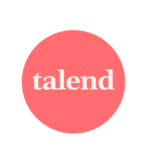Compare MongoDB and Talend Data QualityComparison | |
|---|---|
MongoDBGet your ideas to market faster with a developer data platform built on the leading modern database. MongoDB makes working with data easy. Find out more | Talend Data QualityTalend Data Quality gives you quality controls to profile, clean, and mask data in any format or size to deliver data governance for trusted and compliant data. Find out more |
| Try MongoDB | Try Talend Data Quality |
| Things to look out for | |
|---|---|
| |
| Who is it for? | |
| |
| Features | |
Cloud Service Providers
Keep up to date about Data Management offers like MongoDB
PrivacyMongoDB
About MongoDB
MongoDB is a document-oriented NoSQL database used for high volume data storage and retrieval.
It is a cross-platform database that can be used with various programming languages such as Java, Python, and Ruby.
MongoDB is designed to be flexible and scalable, making it ideal for businesses of all sizes.
Who Should Use MongoDB?
- Developers who need to store and retrieve large amounts of data quickly
- Businesses that require scalability and flexibility in their database solutions
- Companies that need to handle complex data structures and relationships
Key Benefits and Features
- Scalability: MongoDB can handle large amounts of data and can be scaled horizontally across multiple servers.
- Flexibility: MongoDB's document-oriented data model allows for easy changes to the database schema.
- High Performance: MongoDB's architecture is optimized for high performance and can handle complex queries efficiently.
- Open Source: MongoDB is open source software, which means it is free to use and can be customized to meet specific business needs.
- Cloud-Based: MongoDB can be used in the cloud, making it easy to deploy and manage.
How MongoDB Compares with Competitors
Compared to other NoSQL databases, MongoDB offers a unique combination of scalability, flexibility, and performance.
It is particularly well-suited for handling complex data structures and relationships.
Some of the key competitors to MongoDB include:
- Apache Cassandra
- Amazon DynamoDB
- Couchbase
- Redis
Help & Support
- What is MongoDB?
- MongoDB is a general purpose, document-based, distributed database built for modern application developers and for the cloud era.
- What are the benefits of using MongoDB?
- MongoDB offers several benefits such as flexible data model, scalability, availability, high performance, and ease of use.
- What programming languages can be used with MongoDB?
- MongoDB supports several programming languages such as Java, C#, Python, Node.js, Ruby, and PHP.
- What is the difference between MongoDB and traditional relational databases?
- MongoDB is a document-based database whereas traditional relational databases use tables with rows and columns. MongoDB offers a more flexible data model and is designed for scalability and performance.
- What is MongoDB Atlas?
- MongoDB Atlas is a fully-managed cloud database service that provides automated provisioning, scaling, and backup of MongoDB databases.
- What is the pricing for MongoDB Atlas?
- Sorry, pricing is excluded from this list of FAQs.
Talend Data Quality
Talend Data Quality is a comprehensive data quality solution that helps organizations ensure the accuracy and completeness of their data.
It provides a range of features and tools to help organizations cleanse, standardize, and enrich their data, as well as monitor and report on data quality.
Talend Data Quality is designed for organizations of all sizes, from small businesses to large enterprises.
Key Benefits and Features
Talend Data Quality offers a range of features and tools to help organizations cleanse, standardize, and enrich their data.
These include:
- Data profiling and analysis to identify data quality issues
- Data cleansing and standardization to ensure data accuracy and completeness
- Data enrichment to add additional context to data
- Data monitoring and reporting to track data quality over time
Who Should Use Talend Data Quality?
Talend Data Quality is designed for organizations of all sizes, from small businesses to large enterprises.
It is ideal for organizations that need to ensure the accuracy and completeness of their data, as well as monitor and report on data quality over time.
How Does Talend Data Quality Compare to Its Competitors?
Talend Data Quality is a comprehensive data quality solution that offers a range of features and tools to help organizations cleanse, standardize, and enrich their data.
It is designed to be easy to use and is more affordable than many of its competitors.
Help & Support
- What platforms does Talend Data Quality support?
- Talend Data Quality supports a range of platforms, including Windows, Linux, and Mac OS X.
- What features does Talend Data Quality offer?
- Talend Data Quality offers a range of features, including data profiling, data cleansing, data enrichment, data matching, and more.
- How does Talend Data Quality help organizations improve data quality?
- Talend Data Quality helps organizations identify and correct data errors, improve data accuracy, and ensure data consistency and completeness.
- What is Talend Data Quality?
- Talend Data Quality is a suite of data quality tools that help organizations ensure the accuracy, consistency, and completeness of their data.
- What are the benefits of using Talend Data Quality?
- Talend Data Quality helps organizations improve the quality of their data, reduce costs associated with data errors, and increase customer satisfaction.
- What types of data can be managed with Talend Data Quality?
- Talend Data Quality can manage structured and unstructured data, including customer data, product data, financial data, and more.

